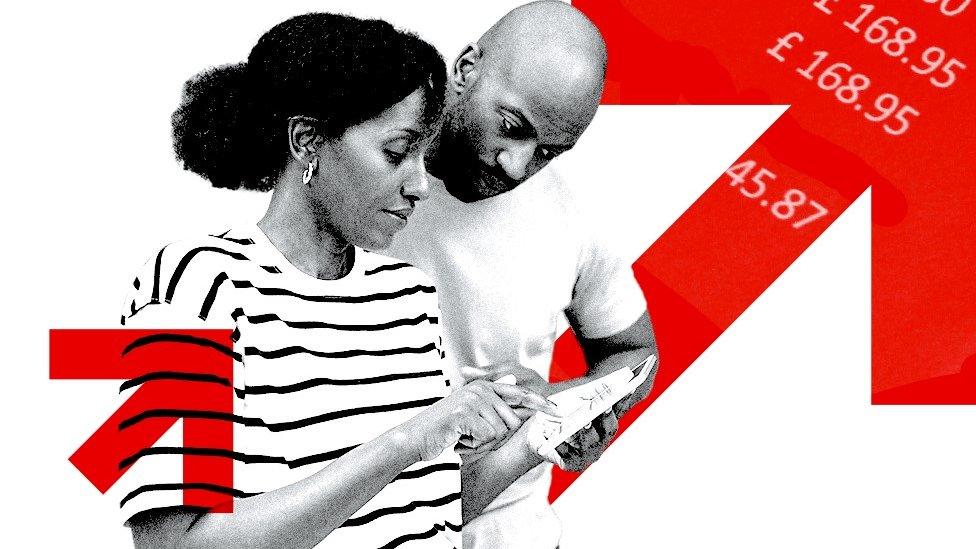Cost of living: How gas and electricity price changes may affect you
- Published

Cuts in government support towards energy bills will push up prices for many in Northern Ireland
A cut in government support towards energy bills is going to push up prices for many households in Northern Ireland.
As the cost of wholesale energy is falling, so too is the level of government support.
The Energy Price Guarantee started in Great Britain in October and one month later in Northern Ireland.
This support, which was backdated in Northern Ireland, is now coming to an end on Saturday.
From January to March 2023, energy bills in Northern Ireland were being discounted by up to 13.6p per unit for electricity and 3.9p per unit for gas.
That support is being reduced, which means from April to June 2023 bills will be discounted by up to 3.8p/kWh for electricity and 2.6p/kWh for gas.
This will offset price decreases from a number of suppliers and mean higher household bills for tens of thousands of customers.
What will this mean for electricity prices?
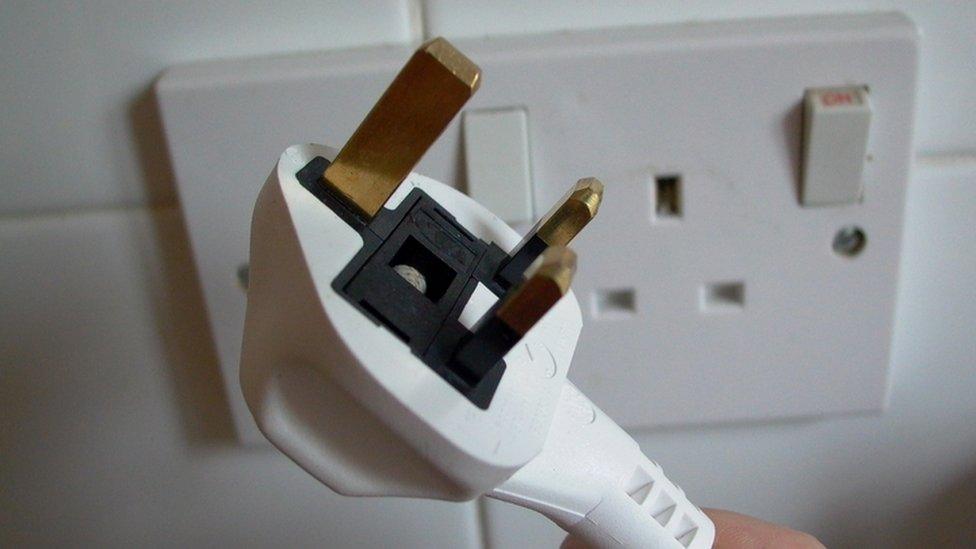
The energy market in Northern Ireland is regulated by the Utility Regulator
Power NI prices will rise by 14% from April making a typical annual bill = £966. The company has more than 474,000 customers in Northern Ireland
SSE Airtricity prices are up 37% from April making a typical annual bill = £1,229. It has 161,000 customers in Northern Ireland
Electric Ireland prices are up 18% from April making a typical annual bill = £1,249. It has about 96,000 customers
Budget energy has no change as the cut in support offsets price reduction. A typical annual bill = £1,337. It has about 80,000 customers
Click Energy prices are up 41% from April making a typical annual bill = £1,132. It has about 24,000 customers
What about gas prices?
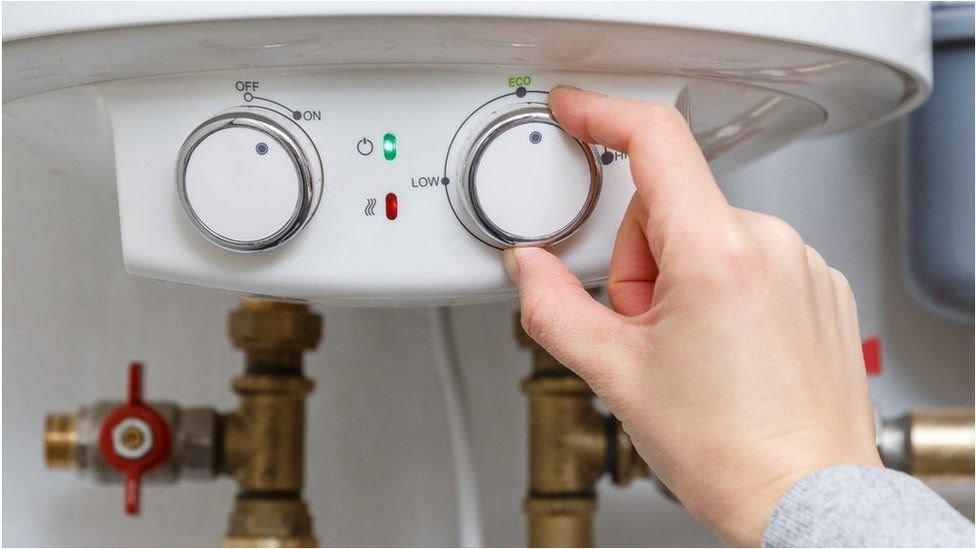
There has been a steep increase in energy prices for households
SSE Airtricity prices are up 15% making a typical annual bill = £1,266. It has around 190,000 customers
Firmus - Ten Towns - prices are down 14% making a typical annual bill = £1,147 affecting 64,500 customers
In Greater Belfast, prices are down 19% making a typical annual bill = £1,190 for 43,000 customers
Director of Infrastructure and Sustainability at the Consumer Council, Peter McClenaghan, said: "Some consumers' bills will not reduce as much as initially advertised and some bills will increase when the updated Energy Price Guarantee rate is applied.
"The same change is not happening in the rest of the UK. This is because we have been receiving a higher level of government support to make up for the fact that we began receiving assistance a month later.
"From 1 April, Northern Ireland consumers will receive the same level of support as is being provided in GB," he added.
How do bills in Northern Ireland compare to Great Britain?
From April, the Energy Price Guarantee will bring a typical household energy bill for gas and electricity to around £2,500 per year in Great Britain versus around £2,109 per year in Northern Ireland.
The Utility Regulator for Northern Ireland, which regulates the largest electricity supplier Power NI, said the typical Power NI annual bill will be 29% lower than Great Britain and 42% less than the Republic of Ireland.
What about home heating oil prices?
The majority of homes in Northern Ireland use home heating oil to heat their homes.
The Consumer Council which tracks prices locally said they are now almost back to levels seen prior to the war in Ukraine.
The average cost for 300 litres of oil this week was £206.98 and the pre-Ukraine war average was £206.14 in February 2022.
What is the deadline to redeem the £600 energy voucher?
The vast majority of people who have received their energy vouchers have already redeemed them, but for those who have not, the deadline is 31 March.
Earlier this month, the Post Office said about 20,000 households - about 4% of the total that were issued - had yet to redeem their voucher.
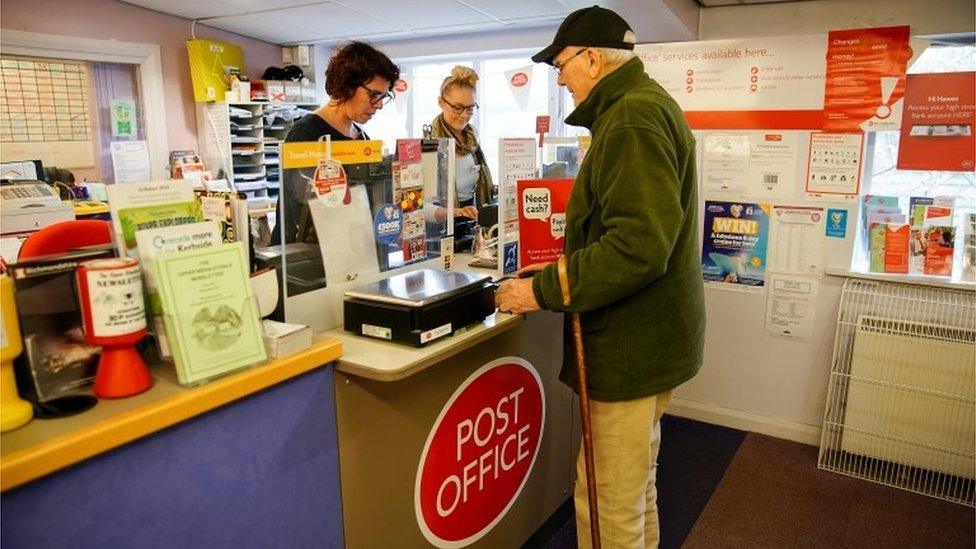
The energy support scheme is due to end on 31 March
Some customers who had their vouchers reissued will have three months from their new issue date to redeem them, so are not impacted by the end of March deadline.
The vouchers can be redeemed at any Post Office branch.
The initial roll-out of the scheme was from 16 January to 7 February.
The last batch of vouchers was sent out by 11 February.
Related topics
- Published16 March 2023

- Published15 March 2023
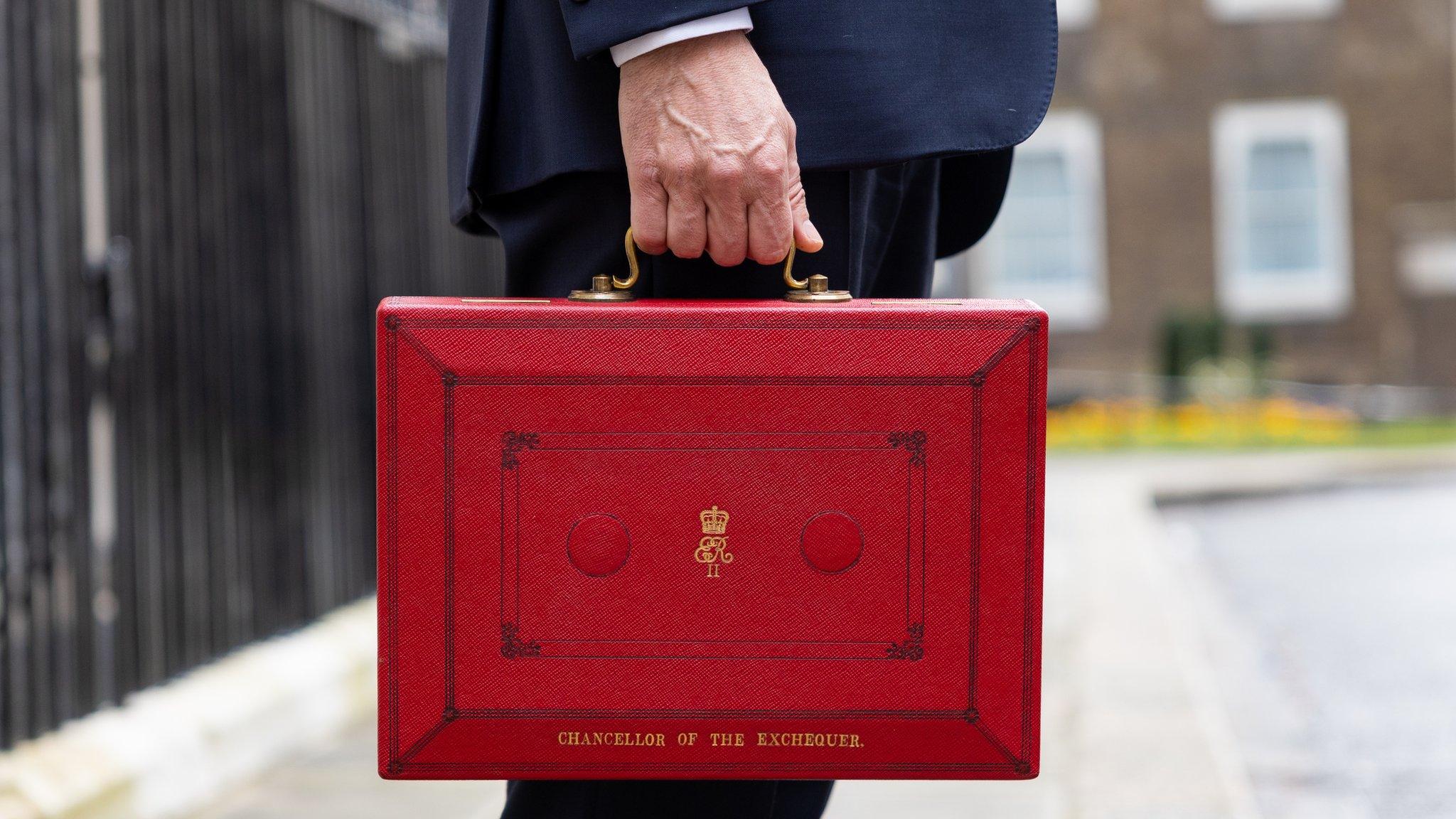
- Published3 April 2024
